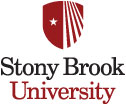Newswise — STONY BROOK, NY, September 18, 2012 – Three Stony Brook University professors have earned the distinction of Education Fellow in the Life Sciences by the National Academies for the 2012-2013 academic year. This honor was bestowed upon them by virtue of their selection and participation in the 2012 National Academies Northeast Regional Summer Institute on Undergraduate Education in Biology, held this past summer at Harvard University.
Stony Brook University’s team of professors, Giancarlo La Camera, Assistant Professor of Neurobiology and Behavior; Liliana Dávalos, Assistant Professor of Ecology and Evolution; and Edward Luk, Assistant Professor of Biochemistry and Cell Biology, assembled with teams from 14 other research universities from the northeast for five days of presentations, discussions, intensive group work and activities focused on enhancing undergraduate education, with themes of active learning, assessment and diversity.
“I want to personally thank the researchers for the extraordinary efforts they are investing to introduce new pedagogical approaches to teaching and the significant contributions they are making to provide high-quality education in undergraduate biology and the broader life sciences,” said Dennis N. Assanis, Provost and Senior Vice President for Academic Affairs at Stony Brook University. “They are shining examples of the teaching excellence and innovation in our research-intensive institution.”
The Summer Institute is the result of a key recommendation from the 2003 National Research Council report, “Bio2010: Transforming Undergraduate Education for Future Research Biologists,” which called for programs of professional development to engage faculty at research-intensive institutions in taking greater responsibility for high-quality undergraduate biology education. The report emphasized the importance of new approaches to teaching based on emerging evidence about how people learn and a greater emphasis on interdisciplinary teaching. It called upon college and university administrators — as well as funding agencies — to support the development or adaptation of such approaches.
At the 2012 Summer Institute, teams worked together to develop or adapt a series of “teachable tidbits” that they agreed to implement in a course during this academic year and assess whether students learn from that material. Teams also pledged to implement a mentoring seminar to enhance the ability of graduate students, postdoctoral fellows and others to mentor undergraduates in their research laboratory.
“The Summer Institute helped me shape the structure of many activities I was already carrying out in class,” said Professor Dávalos. “It takes a lot of time and effort to lecture without active techniques, and my own experience showed me that without these techniques, students would not gain the skills, knowledge and scientific way of thinking I wanted them to gain. The experience gained at the Summer Institute is helping me to prepare the life scientists and citizens of tomorrow.”
Professor Luk said, “In the classroom, we are so accustomed to learning simply by listening to the professors and taking notes, but it turns out this is the least effective way to learn science. At the Summer Institute, we experimented with new pedagogical techniques that can help students retain and apply their knowledge by encouraging them to actively participate in class. I am planning to implement some of these active learning techniques in my classroom so that we can better prepare our students for the biotech era.”
The Undergraduate Biology Program, which sponsored the participation of the three Stony Brook professors in the Summer Institute, is preparing to create a new interdisciplinary specialization in quantitative biology, for which Professor La Camera will contribute a new undergraduate course. “For me, the real objective of higher education is to learn critical thinking skills that can be applied to any problem outside the classroom,” said Professor La Camera. “At the Summer Institute, we applied the principles of ‘active learning’ and ‘scientific teaching’ to create a teaching module about the use of logarithms in biology,” he said. “The experience gained will be invaluable in helping me successfully launch this exciting new educational initiative.”
###
Editors’ Note: The 2013 Northeast Regional Summer Institute will be held at Stony Brook University from August 4, 2013 to August 9, 2013. It will be hosted by the Stony Brook University Undergraduate Biology Program in collaboration with the College of Arts and Sciences, the Center for Science and Mathematics Education (CESAME) and the Center for Inclusive Education.
